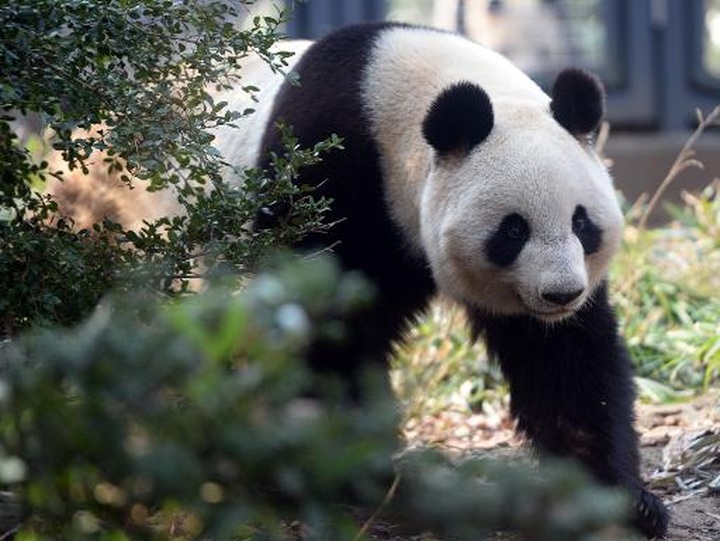Starting Thursday, Shin Shin and her companion Ri Ri will be given a bit of alone time at Ueno Zoo after she began exhibiting signs that she was ready to procreate.
"Shin Shin is moving around more often and bleating like a sheep, a sign that it is mating season," the spokeswoman said.
"The two have good chemistry and we all hope the couple will bear a healthy new baby," she said.

Shin Shin, a female giant panda, walks in her enclosure at Ueno zoo in Tokyo on March 4, 2014
The couple captivated Japan in 2012 when Shin Shin gave birth to a cub, the first giant panda born at the zoo in 24 years.
However, the baby bear died from pneumonia a short time later, an event that provoked newsflashes on national television.
Despite the weight of public expectations, last year's mating season was unsuccessful.
Pandas, whose natural habitat lies in mountainous southwestern China, have a low reproductive rate and are under pressure from factors such as habitat loss.




















